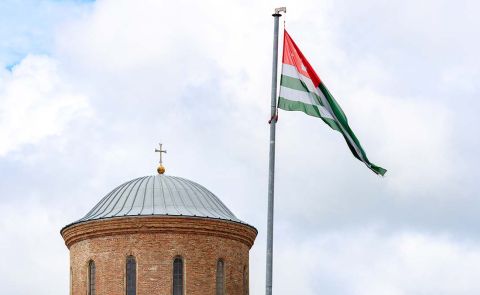
ADB updated its economic forecasts for Georgia

On 15 September, the Asian Development Bank (ADB) updated its economic forecast for its member states. In ADB’s flagship annual publication, Asian Development Outlook (ADO) 2020 Update, the bank forecasted a 5% contract in 2020 followed by a 4.5% growth in 2021 for Georgia.
Georgia’s real GDP reversed 4.8% growth in the first half of 2019 to contract by an estimated 5.8% in the first half of this year. Industry including construction fell by 4.2% year on year, with manufacturing down by 3.5%. Services shrank by 6.8%, with declines of 4.0% in transportation and storage, 6.2% in wholesale and retail trade, and 22.9% in accommodation and food services. Agriculture posted a small gain of 0.3%. The unemployment rate rose by about a percentage point from mid-2019 to 11.9%.
On the demand side, private consumption contracted by 3.3% and restrictions to contain Covid-19 cut private investment by 1.9%. Public consumption recorded a small decline of 0.9%, and public investment 0.8%, but both are expected to strengthen in the rest of 2020 and support private consumption and investment following the announcement of fiscal stimulus equal to 7.5% of GDP. In view of the adverse effects of Covid-19 on the economy and the investment climate, the update forecasted a revival of Georgia’s economy in 2021, based on expected recoveries in tourism, other foreign inflows, private consumption, investment and net exports.
The update also outlined that a possible government standstill following parliamentary elections in October could further reduce growth forecasts, as could prolonged disruption of tourism and external demand and supply chains, sharply driving down consumer and business confidence and causing widespread liquidity crunches to recur.
Inflation accelerated from 3.6% in the first half of 2019 to 6.4% a year later, reflecting price increases of 13.6% for food, 4.3% for other goods, and 2.2% for services. Core inflation reached 6.6% and the producer price index rose by 10.1%. The Georgian lari depreciated by 4.4% year on year in real effective terms as inbound tourism and foreign direct investment plunged, though the National Bank of Georgia, the central bank, intervened to smooth the decline. Despite rising inflation, the central bank cut its policy rate to 8.0% in August 2020 to support economic activity and provide additional liquidity. Bank deposits fell by 3.2% in the first half of 2020 as savings shrank. With rising producer prices and notable currency depreciation, the update raised inflation forecasts for Georgia in 2020 and 2021.
The current account deficit nearly doubled in the first quarter of 2020, from a record low equal to 5.9% of GDP a year earlier to 11.0%, as a 29.8% decline in receipts from tourism cut exports of services by 15.6% while service imports fell by only 3.1%. The trade deficit deepened by 11.4% as exports of goods fell by 6.2% while imports rose by 1.2% despite a sharp plunge in vehicle imports for re-export. Current transfers rose by 12.3% even as remittances fell by 4.6% in the first half—26.6% down from the Russian Federation.
“Georgia has adopted several measures to mitigate the impact of COVID-19 on the economy including easing bank regulations and tax collection, broadening social packages, a cautious reopening of businesses and the promotion of internal tourism,” said ADB Country Director for Georgia Shane Rosenthal. “The recovery can be maintained by prolonging certain tax and credit concessions, stimulating private sector development, and strengthening health institutions in preparation for a possible second wave. ADB remains fully committed to helping Georgia overcome the pandemic and we’ll be there to help the country realize a new era of diversified and inclusive growth,” he added.
See Also


BP Strengthens Presence in Azerbaijan’s Offshore Energy Sector

Netanyahu’s Letter to Aliyev: Mutual Trust, Solidarity Following Hamas Attacks, Facilitating Dialogue Between Israel and Türkiye

Azerbaijan Expands JF-17 Thunder Fighter Jet Order from 16 to 40 Units

EU Commissioner and NATO PA Warn Georgia Over Democratic Decline Amid Accession Challenges

